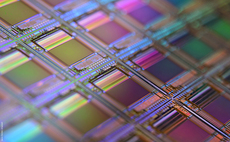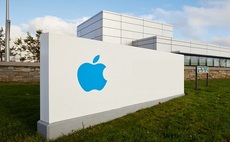Tri-band chip expected to support wireless data rates up to 7Gbit/s
Qualcomm has announced its first tri-band Wi-Fi chipset that supports communications in the 60GHz band, promising multi-gigabit wireless capability for video streaming and other applications such a...
To continue reading this article...
Join Computing
- Unlimited access to real-time news, analysis and opinion from the technology industry
- Receive important and breaking news in our daily newsletter
- Be the first to hear about our events and awards programmes
- Join live member only interviews with IT leaders at the ‘IT Lounge’; your chance to ask your burning tech questions and have them answered
- Access to the Computing Delta hub providing market intelligence and research
- Receive our members-only newsletter with exclusive opinion pieces from senior IT Leaders




















